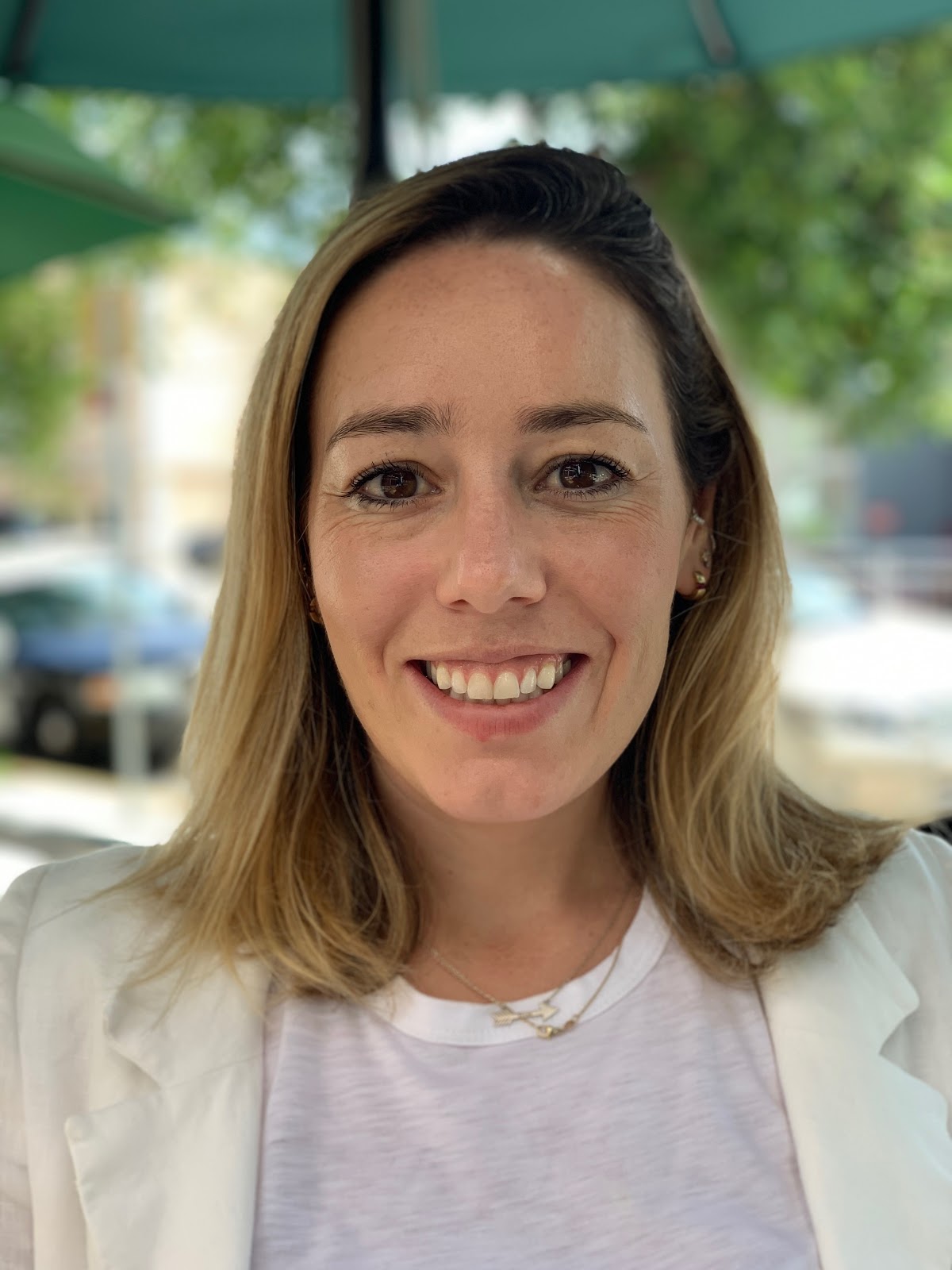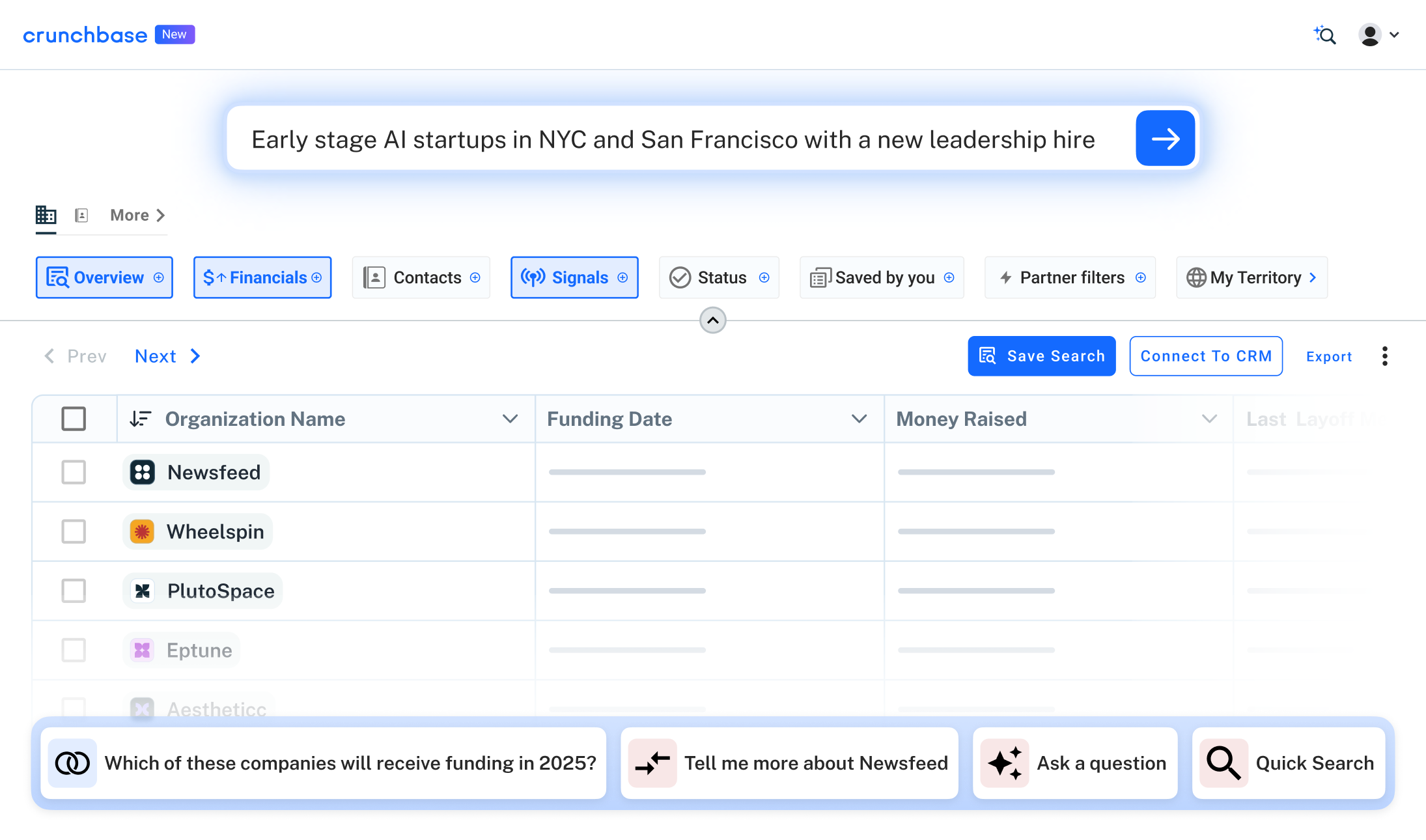The Crunchbase “Female Founder Series,” is a series of stories, Q&As, and thought-leadership pieces from glass-ceiling-smashers who overcame the odds, raised funding, and are now leading successful companies.
Elizabeth Gulliver, Co-Founder of Kunik, is building a community of support for working parents.
When she became a mother, Elizabeth saw — through her own experience and those around her — a need to help families struggling to integrate their careers and family. With more dual-income couples than ever, it’s a growing problem, so her company partners with employers to provide solutions. A virtual treasure trove of expertise, support, and inclusive community, Kunik is an indispensable resource that helps employers retain top talent while improving the lives of working parents.
We asked Elizabeth about her transition from finance to family technology (“famtech”), the surprising challenges she’s faced along the way, and her advice for others simultaneously balancing being a founder, leader, and parent.
Q: Tell us the story behind your company’s founding: What led you to start this business?
A: The inspiration for Kunik came from the firsthand experience of friends, family, and my own personal journey. While working in finance and considering my family planning, I saw my friends and family struggle to integrate career and family in a broken system. When I considered my own career progression, I saw few mothers in senior positions where I worked. The number of working women and dual career couples has been steadily increasing for generations, but the support systems for today’s working parents have not changed. Parenthood is more diverse than ever, more women are working, and young fathers’ priorities are starkly different than prior generations — it’s time for new solutions.
Q: What specific problem does your company solve? When it comes to that issue, what are some of the most meaningful impacts you’ve had to date?
A: Working parents lack ongoing solutions that support them throughout their journey, and motherhood remains the single largest career off-ramp. Until we more completely support all working parents, we will not be able to close the gender and wage gaps that persist in corporate America.
Kunik is a full-family solution for working parents and their employers; we provide ongoing support to all working parents in the form of community and coaching. To date, we have worked with parents at a variety of companies at different points of their career. We focus on group coaching at vulnerable transition points — some of the most impactful group coaching programs have been on the transition back to work from paid leave, career advancement after having kids, and the transition of welcoming siblings to a family. Our coaches cover every topic at the intersection of career and parenthood.
Personally, I love to see the interactions within the community; parents facing the same challenges, parents who have been there before — everyone is sharing and helping each other. It’s been especially valuable right now as we are all adjusting to this unusual and incredibly difficult (and exhausting!) situation of working from home, during a pandemic, without childcare. We’re all literally doing two jobs simultaneously — community support and coaching are the only things helping most working parents survive right now.
Q: In what ways do you think differently about your industry than others do? In what ways are you disrupting your industry?
A: Unfortunately, the focus on working parents in general is fairly new. Most of the support in the workplace so far has focused heavily on visible parents — usually pregnant women — and new parents. I have an 11-month old baby and am five months pregnant, so I intimately understand how challenging the period of planning, conceiving, pregnancy, and newborn care is.
But the challenges working parents face don’t end when they return back to work — if anything, they accelerate. Currently, almost all support stops when paid leave ends and there is nothing that includes all parents — step, adoptive, same-sex, etc. There are many challenges and difficult transitions throughout the parenting journey, and parents are vulnerable to off-ramping their career or taking a step back at any of these points. Kunik enables parents to confidently and successfully navigate these challenges. We are the only inclusive, ongoing community and coaching partner for parents and their employers.
Q: What was one unexpected hurdle or challenge you faced when getting started?
A: Before launching Kunik we spoke to over 1,000 working parents and 300 HR departments, so we had a fairly good idea of what both groups wanted, valued, and needed. What we didn’t realize was that companies have no idea how many working parents they have. We have yet to talk to a single company who can tell us that. They know how many birth mothers they had in the last year, and in a few cases how many new births or adoptions there were overall. But they don’t know how many parents of kids 0-18 they have, and in every case so far, they have far underestimated that number.
That told us two important things: One, no one is supporting these parents if they don’t even know they’re there; and two, we need to change our pricing structure so companies can more easily and inclusively support all parents with Kunik.
Q: What has worked for you in terms of customer acquisition? What hasn’t worked?
A: We have two distinct audiences at Kunik. Our users are working parents, our customers are employers. We have designed Kunik to be scalable, flexible, and adaptable to meet the needs of all working parents and employers.
In terms of reaching working parents, we’ve relied heavily on word of mouth to great success. Reaching employers is, candidly, a longer, harder process. The acute challenges brought on by COVID-19 has been helpful in building awareness about the many continuous challenges that parents with kids of all ages face. Suddenly, companies are realizing how many working parents they actually have and how much help they need in integrating their careers and their families. We’re still a new company though, so there is a lot of education involved in why community and coaching are so effective, why working parents in particular need this level of support, and what the outcomes will look like for both the parent and the employer. We’re industry agnostic, but we’ve learned how to identify companies looking to build strong, inclusive cultures who will be long term partners.
Q: How have you been able to differentiate yourself in terms of product offerings, marketing, positioning or leadership?
A: The family technology, or famtech, space is new and growing rapidly. I come from a finance background where everything is a competition all the time. Every founder I’ve met in famtech has been incredibly open and supportive, it’s a space with a huge amount of collaboration. We’re almost all working parents ourselves and we passionately want to help build a better workplace for our peers and kids.
To that end, it’s been less about how we can differentiate than how we can add value to what’s in the space already and keep expanding the ways working parents can find support. When I looked at the space, the gaps I saw were inclusion, community, and ongoing support beyond the window of paid leave. I am deeply passionate about getting more women and more diverse women into leadership positions, and I do not think we can do that until we support parents. Working parent has long been synonymous with working mom. We need to expand these conversations, communities, and support systems to include all working parents if we’re going to drive meaningful change.
Q: What’s been the #1 lesson you’ve learned about hiring since you started your company?
A: I had managed teams but never hired someone before starting Kunik. I’m still learning a lot in this area. I’ve learned that it’s absolutely crucial to find someone who is passionate about what you’re building and willing to do any job on the team. The reality of building a startup is that 99% of what you’re doing every day is really unsexy, but it’s got to get done. You hire for a specific role, but you really want someone who is going to proactively pitch in, look for work that needs to get done, and do it. It took us time, but we’ve been incredibly lucky to find people who care deeply about Kunik and are committed to this journey, and they make all the difference.
Q: How have you grown as a leader since starting your company?
A: In the course of starting Kunik, I went from family planning to having an 11-month old and now expecting my second. It’s impossible to untangle what Kunik’s taught me about being a mom and what being a mom has taught me about being a leader — the two are intimately intertwined for me. I’m a big picture thinker, who is action oriented, talks a lot, and likes to move quickly. I’ve had to learn to slow down and listen more during the course of building Kunik — not just hear what’s being said, but thoughtfully listen and take time to consider what I’ve heard. That’s been a steep learning curve for me.
As our team continues to grow, I’m learning new lessons in how to share a vision, how to delegate more effectively, and what a vast difference there is between being a founder and being a leader. You can do both, but they’re not the same. Being a mom throughout this has taught me innumerable lessons and new skills, but more than anything it’s held me more accountable to outcomes than inputs. That’s a change from being an employee in the finance world I come from, and something I hope to bring to our whole team.
Q: What advice would you give someone starting out on the journey you’re on?
A: There is a pervasive myth that to start a company you must work 2- hour days and commit your soul to it or be doomed to failure. I worry that prevents a lot of people from starting, particularly women and parents. I started this company at the same time I started a family so that wasn’t even a possibility, and I think that was a blessing. My advice is to talk to anyone and everyone you can, surround yourself with a community — not only supporters but constructive critics as well, and rely on that community for help, support, and guidance. There will be intense periods, but do not forget to find some level of balance with the rest of your life through the process.
Dreamers & Doers is a private collective which amplifies the entrepreneurial pursuits of extraordinary womxn through high-impact resources, community and mutual support. It is supported by a global ecosystem of 30,000 womxn. Learn more about Dreamers & Doers and sign up for their monthly carefully curated list of top career and entrepreneurial resources.
.svg)




.png)
.png)

